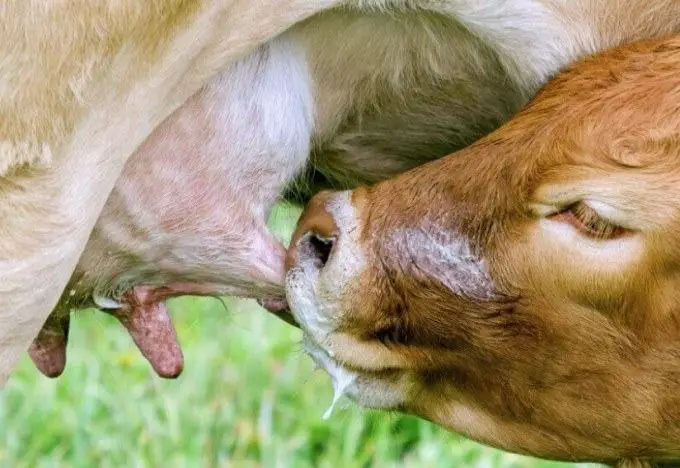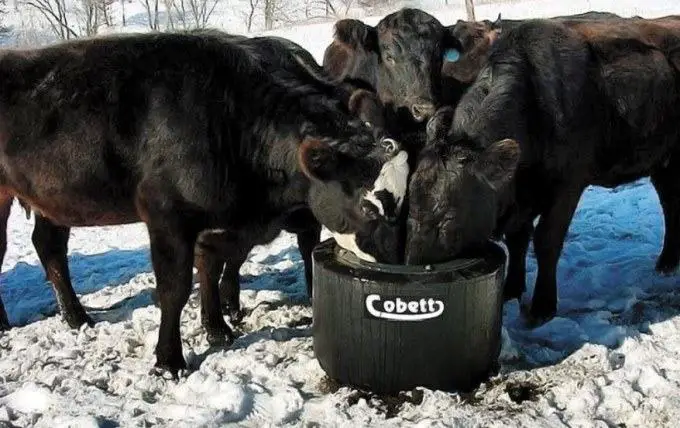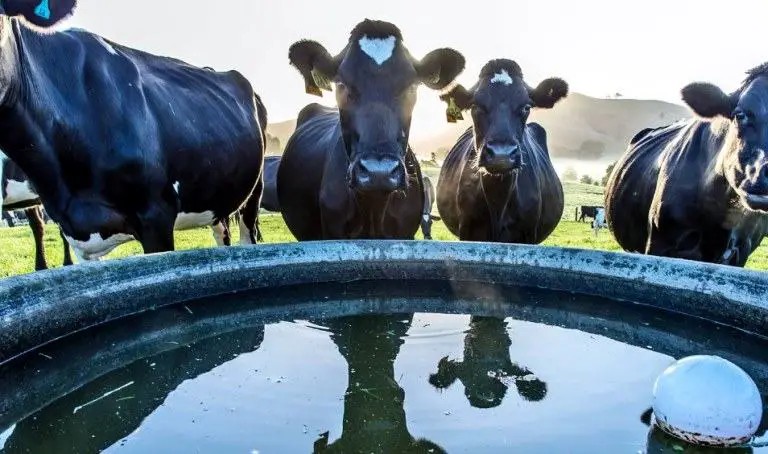No products in the cart.
Cow
What Do Cows Drink? Water, Milk, Or Else?
While consumers are familiar with food products from cows such as beef, milk, or butter as a necessary part of their daily meals, not many people know exactly about the eating habits of cows or even wonder “what do cows drink ?”
“Such a funny question! What else if it isn’t water?” – is that what you think?
Well, read on to explore the answer and more things related to how a cow’s drinking habit can affect its milk production or its beef quality.
*This post may have affiliate links, which means I may receive commissions if you choose to purchase through links I provide (at no extra cost to you). As an Amazon Associate I earn from qualifying purchases. Please read my disclaimer for additional details.
What do cows drink?
Of course, cows drink water since it is considered an essential nutrient for them. In fact, water accounts for 50% to 80% of cows’ weight.
The amount of water cows drink will affect their performance and health. If cows’ intake water is low, their food consumption will decrease, which leads to the slow growth of body size, and limited milk production.
Read More: Best Cattle Waterers. Cows need water that’s fresh and plentiful all year round. We put the best waterers to the test and here are our results!
What do baby cows drink?
Baby cows or calves drink colostrum (the first milk of mother cows) within 24 hours after they are born. This first milk, which is full of antibodies, nutrition, and vital mineral, helps the calves immunize against early diseases and ensure a healthy life for upcoming years.
During the next 2 to 3 months, the calves will begin drinking their mothers’ milk or milk replacers. After that, they can get rid of milk and just drink water like adult cows.
Read More: Best Calf Milk Replacers. If mama cow can’t take care of her calf, these calf milk replacers are some of the most trusted on the market – and here’s what we thought of them.

How much water do cows drink per day?
A cow’s daily water requirement varies depending on what type it is (beef cow or dairy cow), and how the weather is.
Types of cow
Normally, a dairy cow needs more water than a beef cow.
- For beef cows
On average, a beef cow needs from 3 to 30 gallons of water per day to cover the lost water for urine, feces, the evaporating process in lungs and skin. If dehydration is more likely to happen, the cow might drink more.
What is more, the amount of consumed water relies much on the cow’s weight, age, stage of production, and even feeds it consumes.

In terms of diets, when eating food with a high proportion of protein or salt, the animal needs to take more water. In contrast, the consumption of feeds with high water content like green chop or pasture decreases the water requirement of cows.
- For dairy cows
Water has enormous impacts on the body temperature, milk generation, and other body functions of milk cows.
Lactating cows consume twice as much water as ones that stop milking. Milk cows will drink about 4 to 4.5 liters of water for every kilogram of milk lactated, and they have a habit of drinking water after milking or eating dry food.
So, one key point to notice if you have a herd of milk cows: water’s abundance is of the utmost importance for stable milk production.
The weather
The hotter the weather is, the more water cows drink.
During cold days, cows’ water intake is from one gallon per 100 pounds of body mass. If days get hotter, a cow can drink two gallons for every 100 pounds of its body to prevent dehydration.
Fun Fact: Do Male Cows have Udders?
Water quality is important
Water intake can affect the milk production of a cow. However, since cows drink by their needs, low milk production seems to be the result of poor-quality water, rather than insufficient water intake.
If the water source has anything of the following, it is considered low-quality water.
- Water with biofilm and bacteria build up.
- Water with unpleasant or strange smell/taste
- Water from dirty troughs
- Water with a high mineral concentration
- “Warmer water” – water reused from the plate cooler (higher risk of bacteria growth)
- Water with a pH level out of the recommended range (6-8.5).
Water temperature should also be noticed. The ideal temperature range to keep is from 50 °F to 68 °F. Don’t keep it colder as the cow might refuse to drink, and don’t keep it hotter to prevent bacterial growth.
In regard to calves, they need to access freshwater to satisfy their optimal nutrient intake and growth. Calves limited from clean water sources will statistically decline 31% of nutrient absorption and 38% of weight gain.
Make water easily accessible as possible
Drinking is considered a social event of cows especially when they have to find water sources in long distances.
If the water is available within 800 feet from feeding places, this will prevent cows from drinking water as a herd in the same periods during days.
Hence, it can save the travel time of cows and reduce lounge on the way to water supply, manure build-up, and soil compaction, which is partly harmful to water quality.
You will surprise: Can Cows swim?
The takeaway
To sum up, water is the simple answer for the question of “what do cows drink?”. Water is essential for all living creature, including humans, but for cattle, it’s even more.
If you own a herd of milk cows and are experiencing low milk production, please observe the water quality. Maybe it is the root cause of your problem.
